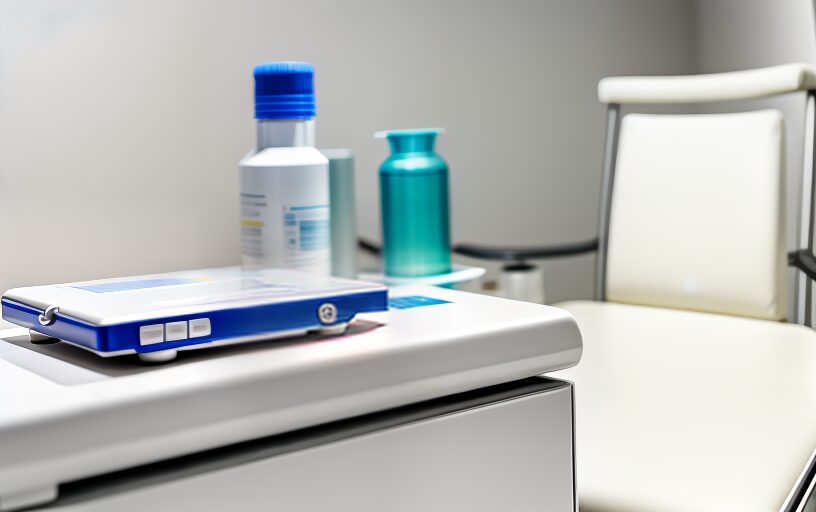
Potentially unsafe medical devices, drugs, supplements, and other products
How would you know if the medicine you use is unsafe? Perhaps you would get a letter from your pharmacy?
And what about the artificial knee that you plan to get, or already have in your body – are you aware that it has been the subject of a product warning or recall?
Keeping our readers apprised of unsafe FDA-regulated products
The Medical Devices and Pharma Team is here to make sure we present the latest drug and device product safety information from FDA and other sources. Here you will find centralized, up-to-date information that is easy to navigate, rather than having to slog through the FDA website or wait until a recall or other field action is announced on the news. In addition to being easily searchable, our data has links to original source information, and major safety news will be presented in posts that are also featured in our weekly newsletter.
Safe and effective drugs
One of FDA’s key objectives is to ensure the safety and efficacy of the nation’s drug supply. But even with the scientific rigor of the agency’s strict and detailed clinical testing and approval processes, sometimes medicines are found to be ineffective, or worse, dangerous to consumers. And in addition to that potential risk, pharmaceuticals can also become unsafe due to noncompliant manufacturing processes, or contaminated ingredients from a domestic or foreign source.
Drug Safety Alerts
FDA Warning Letters to Pharmaceutical Manufacturers
Safe and effective medical devices
Medical device manufacturers are required to be in compliance with FDA regulations for good manufacturing practices within an established and compliant quality system. This includes broad-ranging requirements ranging from product design to post-market device oversight. Unfortunately, many of the hundreds of device recalls for serious safety issues are caused by noncompliance with the regulations. Unsafe devices are usually not identified until after the product is on the market, which makes the promptness of reports, alerts, and notifications especially important. That said, many manufacturers are reluctant to issue a recall for their products, to the point where the FDA becomes involved and insists on a product removal.
For example: a well-known medical device manufacturer received FDA premarket approval PMA for a mechanical circulatory support device in 2017. That same year, the company and facilities where the device was implanted submitted 403 Medical Device Reports (MDRs) for patients on the device – 80 injuries, 301 device malfunctions, and 22 deaths. In 2020, after nearly 5,000 implants of the device, the manufacturer issued a Class I Recall for the system. A month later, FDA ordered the company to stop implants and sales of the device due to an increased risk of adverse neurological events and mortality, and because it was prone to stopping – with a delay in restarting or a failure to restart (Source: FDA’s MAUDE database).
Medical Device Safety Alerts
FDA Warning Letters to Medical Device Manufacturers
The regulatory team at Medical Devices and Pharma will monitor serious device issues that have been reported to FDA to identify potential device safety issues that have not yet been the subject of a recall, field action, or FDA enforcement action. This way, we can provide what may be an early warning to trending safety and efficacy issues.
We hope you find the website useful. And if you have any questions, comments or suggestions, please contact us.
DeRoyal Industries, Inc. Recalls Tracecarts
Urgent Class I Recall Notice DeRoyal Industries, Inc. has issued an urgent recall notice for certain Tracecarts containing 16FR Urine Meter Foley under recall by Nurse Assist. Identified by the FDA as a Class I recall, the most serious type, the use of these devices...
Class I Recall for Stay-Safe Catheter Extension Sets and Adapters
Urgent Class I Recall Notice FDA has issued a Class I recall – the most serious type – for certain medical devices manufactured by Fresenius Medical Care. The recall concerns Stay-Safe Catheter Extension Sets and Stay-Safe/Luer Lock Adapters, pivotal components used...
Abbott/Thoratec Recalls HeartMate II and HeartMate 3 LVAS
Recall Alert: HeartMate II and HeartMate 3 Left Ventricular Assist Systems (LVAS) The FDA has issued a Class I recall, the most serious type, for the HeartMate II and HeartMate 3 Left Ventricular Assist Systems (LVAS) due to potential serious injuries or death...
